- Home
- Helen Dunmore
Mourning Ruby Page 2
Mourning Ruby Read online
Page 2
‘You’d have thought I was trying to torture you, not feed you!’
I had eczema and colic and I rubbed my mother raw. She could not face the whole thing again and so I deprived her of the son she would have loved, and who would have loved her. The big, sunny baby who would have understood her and slept through the night from birth. Her real child.
I used to plot my way back into the past so I could change it. If my real mother had kept me, I could have danced in the street to make money for us both. My twinkling feet would have captured the hearts of strangers and charmed the cash from their pockets so that we could buy fish and chips and furniture. Nothing would have stopped me. I’d have danced until my feet bled.
Everyone knows that mothers want to sacrifice themselves for their children, but there are also children who would give blood to have their parents appear to them, just once, on the battlements of their lives.
You know those women in shawls with babies wrapped up like sausages who walk the length of Tube trains asking for cash? Sometimes the baby has a label pinned onto its clothing:
The woman has written out the label in spiky writing, or maybe it’s one shared label that gets passed from woman with sausage baby to woman with sausage baby. This kind of babywork commands my respect. I’m not criticizing my mother for leaving me in a restaurant backyard, but it’s a pity she didn’t think of pinning a label on me and taking me down the Tube. I would have been with her all the way. Fat tears would have squeezed themselves between my lashes, but I wouldn’t have made a sound. I’d have known that in the confined spaces of a Tube carriage a baby’s screams would produce only irritation, not cash.
(If I’d been an inch prettier, or a mile less mouthy, I’d have done a lot better with both my mothers. If only a newborn baby possessed a strategy.)
At first people mostly gave money to these women with their labelled sausage babies, but now there’s a consensus that times have changed and it’s all right to act tough on this issue, even if you are sensitive inside. No matter how much money you give to one poor person, there is always another. It’s almost as if they are breeding – perhaps with the help of the money you’ve given them. And here comes another one, dragging the baby round the underground while she is probably getting hundreds of pounds in benefit which we are paying for.
As the woman with baby comes yodelling up the Tube carriage, I get out as big a note as I’ve got in my purse and fold it into the baby’s wrappings. Quick as a knife, the woman vanishes the money. She doesn’t want the rest of the carriage seeing how much she’s got from me, in case it dries up their wallets and purses.
She needn’t worry. Their wallets and purses were dry to begin with. They turn their faces from her, mute and stubborn.
(‘What right have you got to be so critical?’ my adoptive father used to say. ‘What’s so wonderful about you?’
My cap-gun, I thought to myself. In my mind I caressed it and smelled its bitter smoke.
‘Take that look off your face,’ said my adoptive father.)
In my opinion it would be good if everyone on the Tube had a descriptive label pinned to their clothes, as these women do. It could be as truthful or untruthful as they liked.
It’s true that I’m favouring the less cheerful possibilities. Some labels could well be shorter and sweeter.
But who was it said that happiness writes white?
Like the interior of an aeroplane, the inside of a Tube train has strict rules. We don’t cry, scream or let ourselves do more than stiffen as the brakes squeeze shut in the deepest passages. I know that logic well. Control yourself, and the world will reward you by controlling its terrors. I watch the mothers with labels pinned onto their babies. I listen as they put back their heads and yell out folk songs from the poorer regions of countries no one wants to hear about. Their faces split in song, as if they are giving birth.
The Russian poet Mandelstam once wrote about baby aeroplanes. He wrote about an aeroplane in full flight giving birth to another aeroplane which immediately flies off and gives birth to its own baby… It’s a metaphor, Joe taught me, as he taught me so much else.
I can see Joe now. We were in the kitchen of our shared flat, and hard rain was spattering the windows. It was late. Joe had worked until he was so lit up he couldn’t sleep. In our separate rooms our separate beds waited, but we didn’t go to them.
‘A metaphor? So you mean Russian aeroplanes can’t really give birth?’
‘Rebecca.’
‘OK then, tell me about it.’
‘It’s a metaphor for the way he worked. For the way things came alive in his head.’
‘Only in his head?’
My words echoed. Too much happened in the head between me and my flatmate Joe. I added up all the brilliance and generosity and sharp wit in Joe’s face and still couldn’t make them come to what I wanted. I didn’t like to think about what he added up when he looked at me.
‘In his head,’ said Joe, ‘and on paper. The point is that he set it down on paper, or we’d know nothing about it.’
Our conversation didn’t go far. Joe wanted to read me the poems in Russian, but I was tired. I went to bed. In the morning I gave him a long wool and cashmere overcoat I’d found in a charity shop and had cleaned for him. Joe put it on immediately, and he wore it every day that winter.
But since then I’ve never been able to stop looking for those baby aeroplanes. They must be on the tarmac somewhere, butting their mothers’ sides, sucking at the fuel line, pretending to be big enough to fly.
‘Mandelstam never wrote about baby Tube trains,’ Joe told me another time. ‘Maybe because he was killed before they built the Leningrad metro. Imagine the metaphors he would have made out of that. He would have liked the way the trains stop with their doors matching exactly to the holes in the walls. You don’t wander up and down the platforms choosing your carriage. You step right in and you are swallowed.’
This is the full story of the metaphor, as given to me by Joe. Someone asked Mandelstam what poetry was like, and he said that it was like an aeroplane flying along which gives birth to a baby aeroplane which immediately begins to fly with its full strength and its own life, and gives birth to its own baby aeroplane. All this happens without any of the aeroplanes missing a beat. All this happens within one poem. Mandelstam’s baby aeroplanes never nuzzle and butt around their mothers’ bellies. Immediately they are born they fly off, with their own life.
It took me a long time to learn to love Mandelstam. At first he belonged too much to Joe. But I love him now. He was murdered by Stalin and no one knows where he is buried. He was last seen picking over a rubbish heap in a transit camp at Vladivostock.
Before that, in Voronezh, standing in the ruins of his own life, he wrote about a woman limping over the empty earth. He wrote of her beautiful, uneven footsteps. Stalin had not yet murdered him, but he was, let’s say, in the process of murdering him. The decision was already made in some playful, trivial corner of the Stalin brain. All it had to do was take the trouble to enact itself.
I believe that Mandelstam was right about those baby aeroplanes. He’d given the whole of his life in order to understand them. Although I haven’t yet seen them, I believe that they are there. So I look out for the moment when a cigar tube of sterile metal gives birth, whilst flying at full strength.
But in my experience, we cannot always fly at full strength.
3
An Engine has Failed
When you fly at full strength you cannot fall. Once I watched a TV programme which aimed to show scared flyers why they were wrong. The programme was made for flying phobics, and it worked so well they thought we should all have a chance to see it.
In the TV diagrams the grey metal body of the plane was borne aloft by cushions of force and thrust. The diagrams proved that no aeroplane could ever shrug its metal shoulders, stop pretending that it’s possible to defy gravity, and plummet out of the air. Not only was the aeroplane incapable of such a w
ish, but natural forces would not permit it.
Once, when I was flying to meet Adam in Hong Kong, where he was taking part in a conference, I woke at dawn and walked to the back of the plane. A man had lifted the window shutter and was staring down. I joined him. Thirty-three thousand feet below us were the mountains of Mongolia, red as the mountains of the moon.
‘We wouldn’t last a minute down there,’ said the man, in a cold determined voice. ‘What takes you to Hong Kong?’
‘I’m meeting my husband. He’s at a conference.’
‘What’s he do?’
‘He’s a neonatologist.’
‘Neonatologist, hey?’ said the man, regarding me with his boiled blue eyes.
‘Yes. He works with newborn babies. Premature babies.’
‘I know what the word means,’ said the man. ‘You got any babies yourself?’
Adam and I had been married twelve months. I remember the moment I answered that man. The clarity and sureness with which I said, ‘No. Not yet,’ and the way he said, ‘All the fun still to come, eh?’ in a lubricious voice as if he was thinking of the sex we would have to conceive the child.
The mountains beneath us were Mongolia, yet I could reach out my hand for a paper cup of iced water. I went back to my seat and shut my eyes as the plane began to buck through clear-air turbulence. I said to myself what I always say at these times: Rocked in the cradle of the deep. Rocked in the cradle of the deep. I don’t know where it comes from or why it helps, but it does. Around us the deep held our plane on the palm of its hand, tossed it up, let it fall.
When an engine fails there’s no preparation. It was years later that I found this out. I was on my way back from New York to London. A work trip. I’d done everything I was sent to do. Sidney House would open in five weeks and my employer, Mr Damiano, would probably bring me back with him for the opening. I had been sorting out all the last-minute glitches. Snagging.
I thought Mr Damiano was pushing it with the name he’d chosen for the new hotel. It wasn’t a name with any style. Mr Damiano disagreed. He said that Sidney had a nice feel to it. It was a good name to give to a cab driver. What he really meant is that we’ve got people to the point where any name we give will work. I hoped I wouldn’t find out that Sidney was the name of the dog Mr Damiano had when he was a boy, rather than that of the minor English poet whose work he’d given me to read.
We have Sidney, we have Lampedusa (Where’re you staying? Oh, the Lamp Post. Naturalmente.), we have Villon (Village), Langland, Sorescu, Cavafy, Sexton and Bishop. Mr Damiano is an educated man and right from the start, as each hotel was named, he would give me what he considered the finest work of the author. After a week or two he would talk to me about it, as if the writer were as important as the bar, the quality of the wet-room tiling, the reputation of the chef. Lampedusa is the only prose writer. Mr Damiano says there is no reason for this, but that he also intends to name a hotel after F. Scott Fitzgerald one day, so I’m reading The Last Tycoon.
Mr Damiano has educated me, as Joe did. Adam, no. Adam changed me. We changed each other. That’s something different.
It’s nice on a plane when your work’s all done. We were already out of land and the big dark swell of the Atlantic was moving under us. I flicked on the flight map and watched our plane, as big as New York State, push its way north-eastward. The flight attendant brought the dinner I’d ordered, but I didn’t feel like eating it. I drank my wine and watched the sky darken. More than an hour of the flight was already gone. The air was so smooth that my drink lay still in its glass.
‘Ladies and gentlemen, this is Captain Willis again,’ came the light Surrey voice that had already told us about the fine weather, the tail wind that would get us to London ahead of schedule, and the fact that he hoped we would enjoy our flight with him, ‘I’m afraid that one of our engines has failed and so we are not able to proceed to Heathrow, but shall be returning to Kennedy instead.’
I was surprised that he didn’t put it better. We have a problem with one of our engines, maybe. A minor problem.
I looked around. The flight attendants, smiling pleasantly, immediately began to collect up the dinner plates. The man behind me protested that he had not even begun on his fillet steak. ‘It’s just a routine procedure, sir,’ said the girl, whipping his steak out of sight. A dark-haired, confidential, heartbreakingly handsome steward came and sat beside me.
‘As you are sitting by the emergency exit, madam,’ he said, ‘you’ll be aware that we’ll be carrying out certain special procedures on landing, to ensure the safety and well-being of all our passengers.’
‘What?’
‘I’ll be preparing the exit for an emergency landing,’ he said, with a wink. ‘And you’ll be in the front row.’
‘Is that good?’
‘It’s not bad,’ he said consideringly. ‘Not one of the worst places to be sat, I’d say.’
The man behind me leaned around my seat and asked if I thought the engine noise sounded different. I listened but I couldn’t tell. He put his lips together in a smile and asked if I’d like to see a picture of his little girl. He passed me a plump blondey baby with a smiling face and I held out a photo of Ruby, but without letting go of it.
‘She’s beautiful,’ he said immediately, before he could have had time to take in how beautiful she was. I said that his baby was beautiful too.
‘I’ve never been on a plane when they’ve pulled one like this,’ said the man. I told him I had, and it had all been fine. They had done an emergency landing and everything had worked out.
‘Oh, OK,’ said the man, nodding firmly. ‘I’m glad to know that.’ Then he asked me where it had been.
‘Moscow,’ I said, thinking it through.
‘Jesus,’ said the man. ‘You wouldn’t get me on one of those Russian planes. Don’t you know their air traffic control is all shot to hell?’
I shut my eyes. Rocked in the cradle of the deep. Rocked in the cradle of the deep. I could hear a change in the engine noise and I wondered if we were still over the Atlantic Ocean. Joe had told me once where the continental shelf began, but I couldn’t remember. If we were over land maybe someone was looking up at this moment. Maybe they could hear the change in our engine sound. They would listen and be glad that their feet were planted on solid earth.
The man behind me tapped my arm.
‘I’ve been watching that girl over there.’ He indicated the flight attendant who was checking the overhead lockers. ‘She looks pretty upset to me. When the crew gets scared, I get scared.’ He said it as if this was a rule of life he’d always abided by.
‘She split up with her boyfriend last night,’ I said. ‘She was telling me about it when she brought the wine.’
‘Girl stuff, huh,’ he said. ‘You’d think she’d have something better to worry about than her boyfriend right now.’
The hour passed slowly, but the two times the man tapped my arm again I pretended to be sleeping. I was afraid he’d wake me to say, ‘Sleeping, huh. Think you’d have something better to do than sleep,’ but after a couple of taps he rang for the flight attendant and started telling her that everyone gets bad knocks in life but they are part of growing into the person God means you to be.
‘We’re following a routine procedure for the benefit of customer welfare and safety, sir,’ she replied. ‘After our landing in Kennedy you will be transferred to the next available flight with the minimum of wait.’
The plane was going down fast. Suddenly the lights of New York shocked into view. My ears hurt, and the handsome steward came to take his seat directly opposite me.
‘Soon be down,’ he said, and winked again. He leaned forward braced like a runner, with his hand gripping the emergency handle. The plane whooshed upwards, then steadied itself.
‘We’re coming in to land.’
The plane went down with a bang but held steady as it hurtled down the runway. What I hadn’t thought of were the fire-trucks and other emergency v
ehicles with flashing lights that raced with us parallel to our runway. We were down. We were on the runway. We were not on fire. The handsome steward relaxed his grip on the emergency handle.
‘You won’t get your chance to go down the chute today,’ he said. The plane slowed until it was a solid thing again on solid land.
‘No way are they getting me up in one of these things again. No way,’ said the man behind me. But I knew they would.
4
Mr Damiano’s Dream
So there I was on the tarmac, waiting for someone to shepherd me. The air was thick and warm and wind blew in gusts from the hurricane tail that had passed through New York two days before.
I already knew how disappointed in me Mr Damiano would be. I was going to go back to London and tell him that I was leaving his employment. I wouldn’t be caught up into his bright new future. My momentum had stalled. I no longer wanted to sit in business class in the hope of sitting in first class one day.
No way are you getting me up in one of these things again.
I would never tell Mr Damiano the true reason. Mr Damiano has given me everything he knows about life. Not many employers would share their dream as he does. How you have to be tough, and how you can put the name of a minor English poet on everyone’s lips. In his heart he’s a fairground man. He picked me up out of the mud and cleaned the dirt off me. He put me up on the trapeze with a plume of light on me. I swooped from continent to continent, I dealt with men who wanted to cheat him, I cached a thousand details in my memory and reported them to him. There we were, the hotels and all of us who worked in them, spangled with the dream Mr Damiano carried. He gave me a job.

 The Ingo Chronicles: Stormswept
The Ingo Chronicles: Stormswept The Deep
The Deep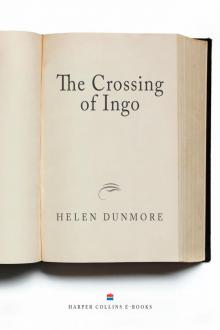 The Crossing of Ingo
The Crossing of Ingo Birdcage Walk
Birdcage Walk Glad of These Times
Glad of These Times Counting the Stars
Counting the Stars With Your Crooked Heart
With Your Crooked Heart Burning Bright
Burning Bright House of Orphans
House of Orphans Mourning Ruby
Mourning Ruby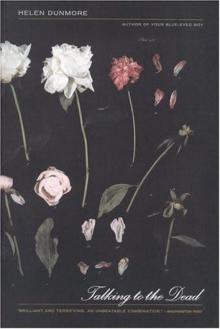 Talking to the Dead
Talking to the Dead Exposure
Exposure Ingo
Ingo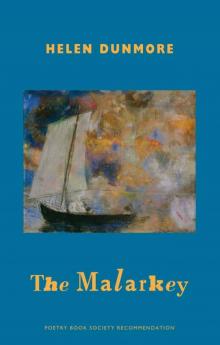 The Malarkey
The Malarkey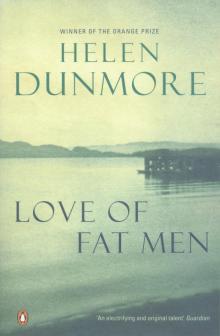 Love of Fat Men
Love of Fat Men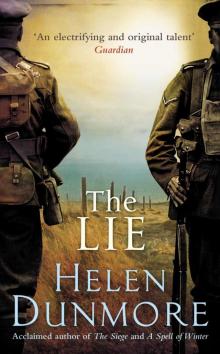 The Lie
The Lie The Siege
The Siege Inside the Wave
Inside the Wave Counting Backwards
Counting Backwards The Land Lubbers Lying Down Below (Penguin Specials)
The Land Lubbers Lying Down Below (Penguin Specials) The Greatcoat
The Greatcoat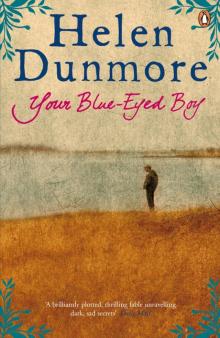 Your Blue Eyed Boy
Your Blue Eyed Boy Zennor in Darkness
Zennor in Darkness Spell of Winter
Spell of Winter Out of the Blue: Poems 1975-2001
Out of the Blue: Poems 1975-2001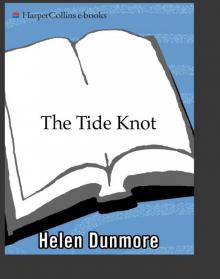 Tide Knot
Tide Knot The Betrayal
The Betrayal A Spell of Winter
A Spell of Winter Out of the Blue
Out of the Blue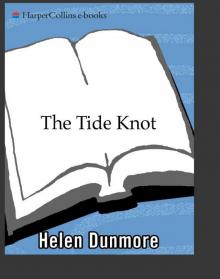 The Tide Knot
The Tide Knot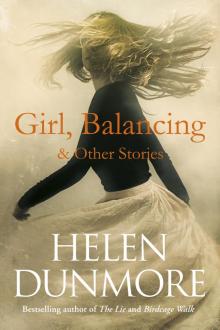 Girl, Balancing & Other Stories
Girl, Balancing & Other Stories Betrayal
Betrayal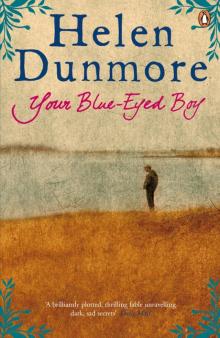 Your Blue-Eyed Boy
Your Blue-Eyed Boy